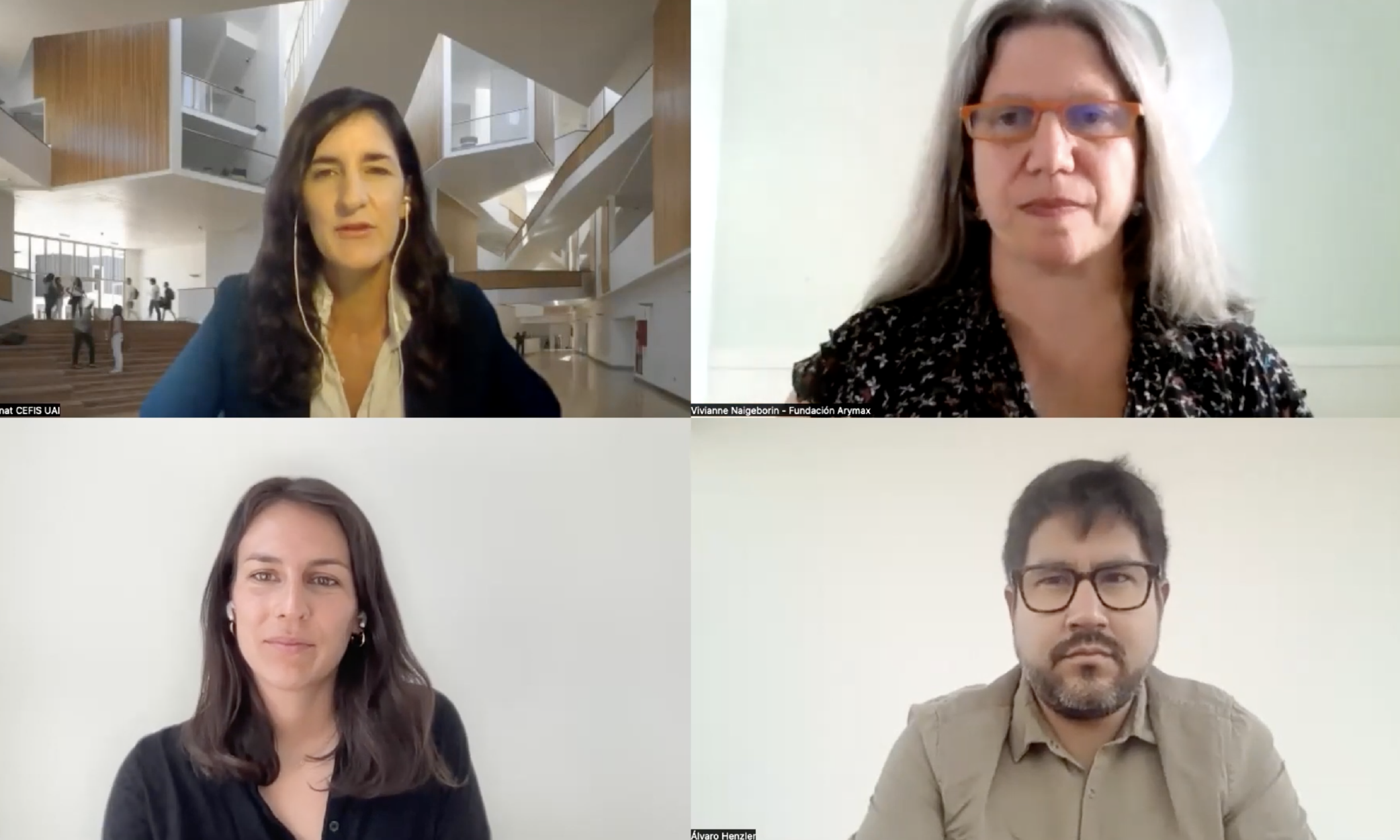The Center for Philanthropy and Social Investment (Cefis in Spanish) of the Universidad Adolfo Ibáñez (UAI) and the Center on Philanthropy and Civil Society of Stanford University held the third session of the series of conferences on “Effective Philanthropy in Latin America” on March 29. On this occasion, the “Guide to Effective Philanthropy for Latin America”, developed by both entities, was presented, which proposes as a key element for philanthropy the systemic approach that consists of the development of knowledge, research and design methods.
The conference was attended by Latin American leaders, philanthropists, foundation directors and experts, who shared their experiences in promoting philanthropy in the region and generating a real impact on society. The panel “Sharing: evidence and effective organizations”, moderated by Magdalena Aninat, director of Cefis, included Vivianne Naigeborin, executive director of Fundación Arymax from Brazil; Álvaro Henzler, co-founder and CEO of Mosaico Laboratorio Creativo from Peru, and Isabella Luksic, director of the Articulation and Advocacy area of Fundación Luksic.
In her participation, Isabella Luksic highlighted the importance of evaluation and evidence to create quality programs. “It is necessary to carry out prior evaluations, look for evidence in theory and in users, generate bonds of trust with the communities and work collaboratively with experts, so that together we can identify the problem and be effective in delivering a solution,” explained the sociologist.
“It is necessary to professionalize philanthropy, in the understanding that we have to get out of the logic of charity and move to quality. We have to focus on attracting and retaining talent and for this it is also necessary to form multidisciplinary teams that are innovative and willing to take risks,” stressed the director of the Luksic Foundation’s Articulation and Advocacy area.
Por su parte, Vivianne Naigeborin compartió la visión de Isabella y sostuvo que para alcanzar una mejor calidad en los proyectos el gran desafío es “crear la cultura de evidencia y evaluación en las organizaciones y encontrar los aliados más preparados para ayudarnos en ese recorrido. Debemos incorporar estos dos elementos en el día a día en nuestros equipos para hacer un trabajo con sentido e impacto”.
En esa misma línea, Álvaro Henzler, hizo hincapié que para profesionalizar la filantropía, es fundamental “invertir en equipos ejecutivos, en construir directorios y gobiernos corporativos que funcionen y sobre todo, no tenemos que verlo como un gasto, sino que estamos fortaleciendo la maquinaria y la plataforma para poder escalar los beneficios a más personas”.
Este panel y todos los ciclos de conferencias están disponibles en el sitio web de Filantropía Institucional de América Latina, de la Universidad Adolfo Ibáñez.

